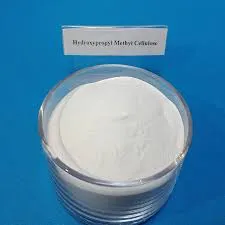
נוב . 04, 2024 22:16 Back to list
mortar bonding agent
Understanding Mortar Bonding Agents Enhancing Adhesion in Construction
In the construction and masonry industry, the integrity of structures often hinges on the quality of the materials used and their ability to bond effectively. Among these materials, mortar plays a crucial role as a binding agent for bricks, stones, and other masonry units. However, to ensure that these materials adhere properly and maintain structural integrity over time, mortar bonding agents have become a vital component in modern construction practices.
What are Mortar Bonding Agents?
Mortar bonding agents are additives that enhance the adhesion properties of mortar. These agents can come in various forms including liquids, powders, and emulsions. They are designed to improve the bond between mortar and substrates such as concrete, masonry, and even wood. By enhancing adhesion, these bonding agents minimize the risk of cracks and failures in masonry walls, ensuring longevity and stability.
Purpose and Benefits
The primary purpose of a mortar bonding agent is to improve the bond strength of mortar. Here are some key benefits of using these agents
1. Enhanced Adhesion Mortar bonding agents significantly increase the adhesive properties of traditional mortar, allowing it to form a stronger bond with the substrate. This is particularly beneficial in challenging environments where moisture, temperature fluctuations, and other factors can affect adhesion.
2. Reduced Mortar Thickness With improved bonding capabilities, less mortar can be used without compromising structural integrity. This not only saves materials but also reduces labor costs.
3. Versatility Mortar bonding agents can be utilized in various applications, including new constructions, repairs, and renovations. They are effective in bonding dissimilar materials, making them a versatile choice for various projects.
4. Crack Resistance Some bonding agents are formulated to enhance the elasticity of mortar, allowing it to flex and absorb stresses. This leads to a reduction in the likelihood of cracks forming over time, which is essential for maintaining the aesthetic and structural quality of masonry work.
5. Water Repellency Many mortar bonding agents also provide water-resistant properties, which can help prevent moisture ingress. This is crucial for outdoor applications where exposure to water and weather can lead to deterioration.
Types of Mortar Bonding Agents
mortar bonding agent

Mortar bonding agents vary based on their chemical composition and application methods. Common types include
- Latex Additives These are polymer-based additives that can be mixed with mortar to improve its adhesion, flexibility, and water resistance. They are commonly used in tile setting and interior applications.
- Epoxy Resins For heavy-duty applications, epoxy-based bonding agents offer superior strength and durability. They are often used in industrial settings and for repairing structural elements.
- Cement-based Bonding Agents These are specially formulated mortars that contain polymers and are designed to bond to concrete and masonry substrates effectively. They are suitable for both interior and exterior applications.
Application Techniques
To achieve the best results with mortar bonding agents, proper application techniques are essential
1. Surface Preparation The substrate must be clean, dry, and free from contaminants. This may involve cleaning or roughening the surface to enhance adhesion.
2. Mixing Instructions Always adhere to the manufacturer’s instructions regarding the proper mixing ratios to achieve optimal results. Improper mixing can lead to inadequate bonding.
3. Application Use appropriate tools for applying the mortar mixed with the bonding agent. Consistent application thickness is crucial to maintain bond integrity.
4. Curing Allow sufficient curing time for the mortar to achieve the desired strength. Curing conditions, such as temperature and humidity, should also be controlled to avoid compromised adhesion.
Conclusion
Mortar bonding agents are indispensable in modern construction, ensuring the strength and durability of masonry structures. By enhancing the adhesion properties of mortar, these agents help minimize the risks associated with cracking and water damage, thereby extending the lifespan of buildings and infrastructure. As the construction industry continues to evolve, the use of advanced bonding agents will play a critical role in achieving superior construction quality and performance.
-
Versatile Hpmc Uses in Different Industries
NewsJun.19,2025
-
Redispersible Powder's Role in Enhancing Durability of Construction Products
NewsJun.19,2025
-
Hydroxyethyl Cellulose Applications Driving Green Industrial Processes
NewsJun.19,2025
-
Exploring Different Redispersible Polymer Powder
NewsJun.19,2025
-
Choosing the Right Mortar Bonding Agent
NewsJun.19,2025
-
Applications and Significance of China Hpmc in Modern Industries
NewsJun.19,2025







